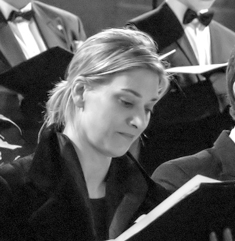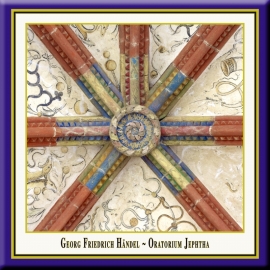Kirsten Blaise

Soprano
Soprano Kirsten Blaise has gained a particular reputation in operatic and concert works of the Baroque and Classical eras, but her repertoire also embraces such composers as Schubert, Mendelssohn, Brahms, Wagner, Mahler and, among leading contemporary figures, John Adams and Michael Finnissy. Born in America, and trained at Indiana University's renowned School of Music, Kirsten Blaise made her professional debut in Indiana in 1996 before moving to Europe to develop her international career. She currently resides in Germany. From 2007 to 2009, as a member of the company at the Badisches Staatstheater in Karlsruhe. At Paris' Theâtre du Châtelet she has appeared as Woglinde in Wagner's Ring, conducted by Christoph Eschenbach, and has also performed at the Staatsoper Stuttgart, De Nederlandse Opera in Amsterdam, the Salzburg Landestheater, Opera Theatre of Saint Louis und Opera Lafayette in Washington D.C. In Summer 2012 she sings Angelica in Haydn's Orlando Paladino at Sweden's Drottningholm Festival. 2011 brought her debut alongside actor John Malkovich in the music-theatre piece The Infernal Comedy, which toured Germany, France, the UK and North and South America. Numbering among her festival appearances are the Holland Festival, Ludwigsburger Schlossfestpiele, the Halle Handel Festival, the Beethoven Easter Festival in Warsaw (with the Bremen Kammerphilharmonie under Trevor Pinnock), Oregon Bach Festival, Carmel Bach Festival. Kirsten Blaise has also collaborated with the Stuttgart Bachakademie and Helmuth Rilling and orchestras such as the BBC Symphony, London Sinfonietta, Netherlands Radio Philharmonic, Noord Nederlands Orkest, Brooklyn Philharmonic, American Classical Orchestra, Dallas Bach Society, Edmonton Symphony and Le Parlement de Musique.





